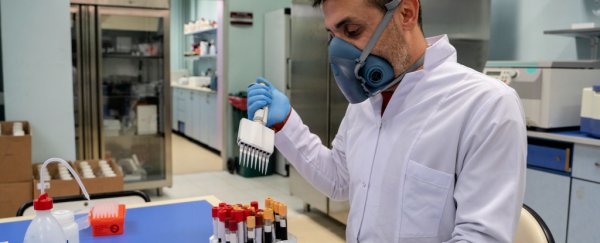The United States has begun taking blood samples from across the country to determine the true number of people infected with the coronavirus, using a test that works retrospectively, according to reports.
The new tests are based on serological surveys, which differ from the nasal swabs used to determine if someone currently has the virus.
Instead, they look for whether certain antibodies are present in the blood which shows that the person fought and then recovered from the illness - even if they never showed symptoms.
These tests are seen as key to gradually easing lockdown, by allowing those who have proven immunity to re-enter society.
"We're just starting to do testing and we'll report out on these very quickly," said Joe Bresee, deputy incident manager for the Center for Disease Control and Prevention's pandemic response, according to the health website Stat News.
He added the CDC would conduct three surveys: The first on blood samples from undiagnosed people from some of the country's coronavirus hot spots, the second a national survey from different parts of the country, and the third a study on health workers.
The first survey has already begun as of the weekend, but no firm timeline has been issued for the other two.
It comes after the Food and Drug Administration (FDA) issued an emergency approval for the first serological test, by the North Carolina based company Cellex, last week.
Separately, Stanford University conducted its own serological survey on Saturday in the city of Santa Clara, Jay Bhattacharya, a professor of medicine at the university told AFP.
"We collected finger prick blood samples from about 2,500 volunteer participants selected to be representative of the county and about 500 of their children," he said, adding the results would be released soon.
